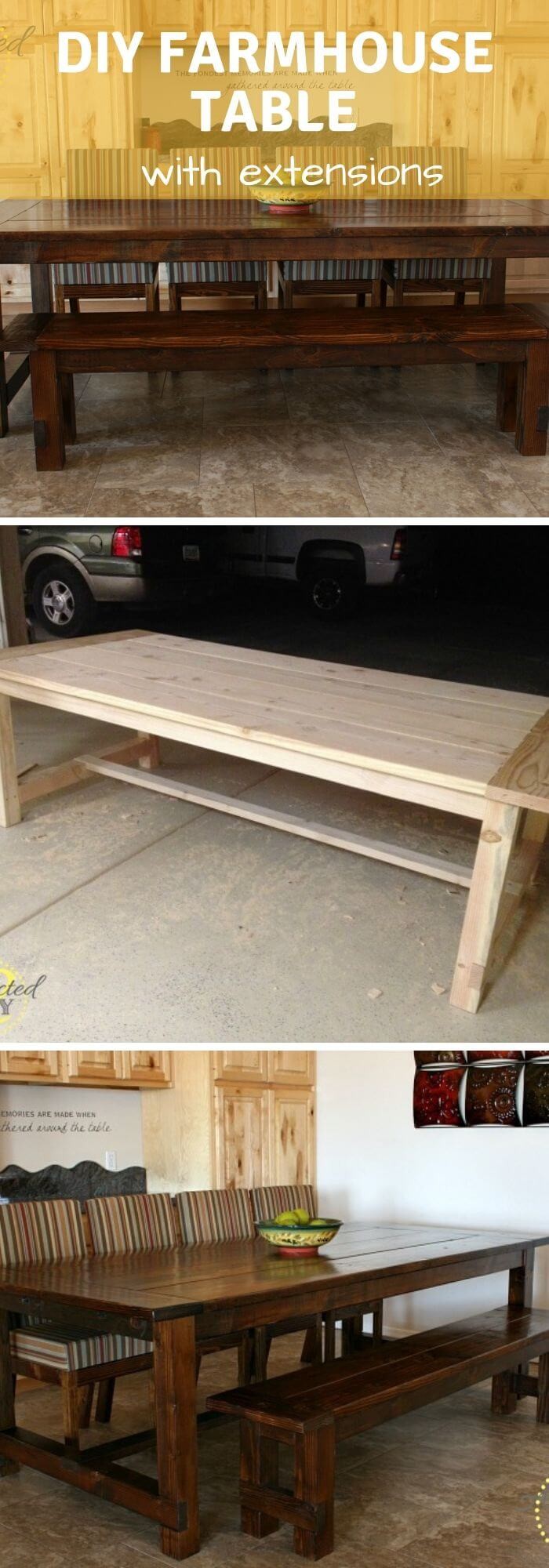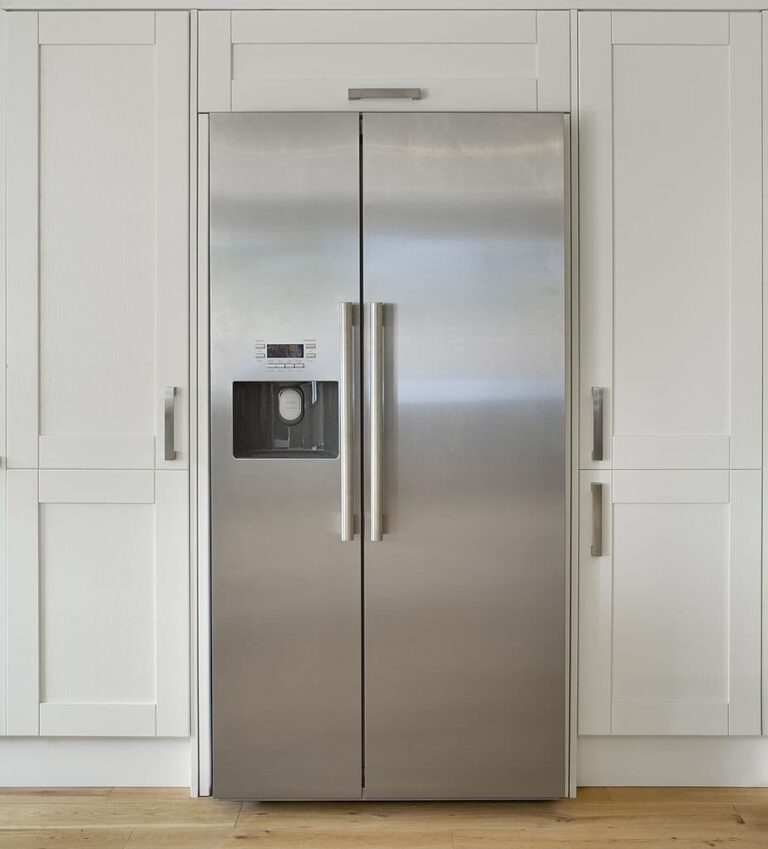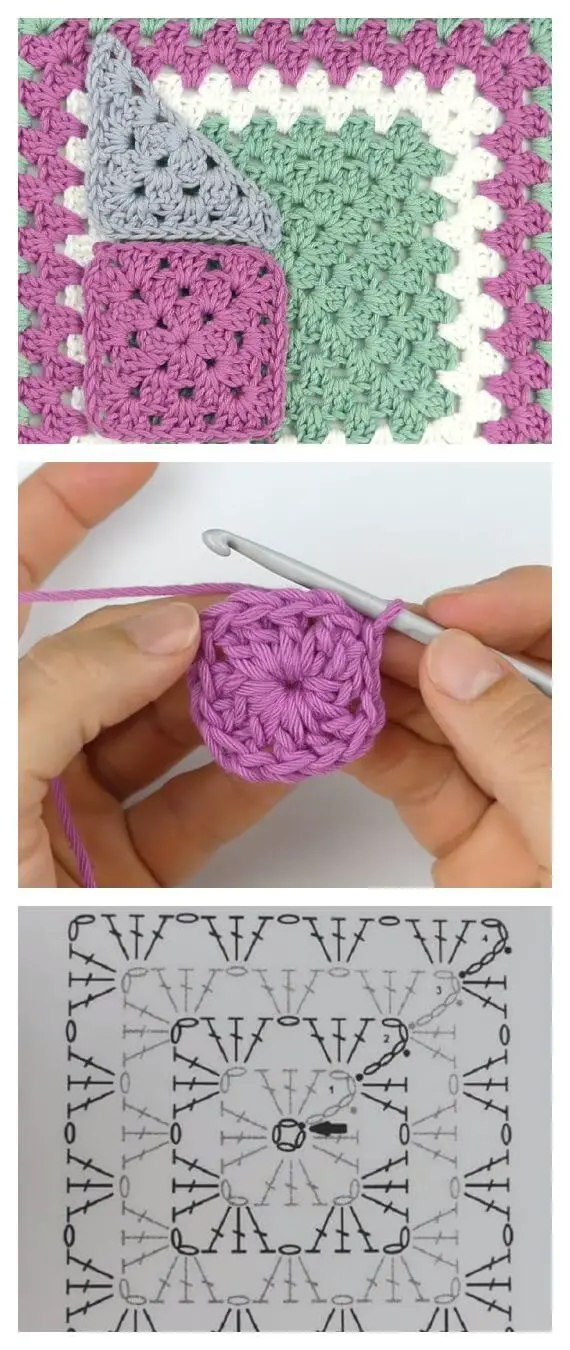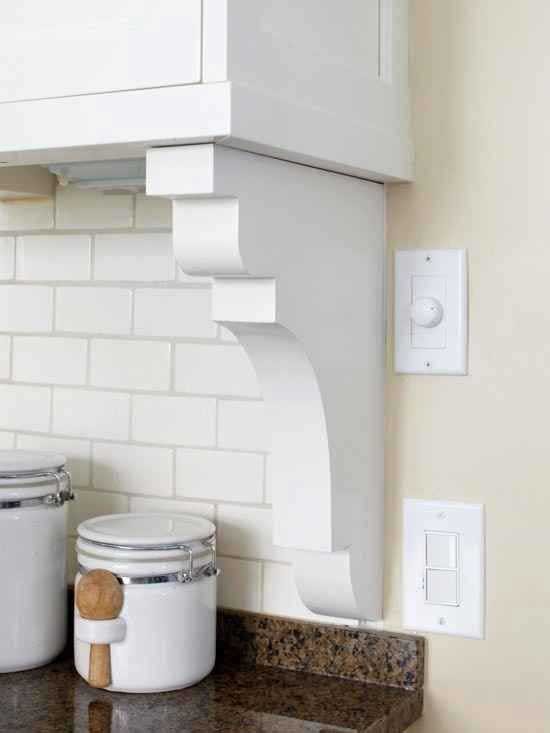22 Types Of Countertops: Which One Is The Best For You?
When it comes to choosing a countertop for your home, the options can be overwhelming. With so many different types to consider, it’s easy to get caught up in the details and lose sight of what matters most – finding the perfect fit for your lifestyle and budget. In this article, we’ll take a closer look at 22 different types of countertops, exploring their unique characteristics, pros, and cons. From butcher block to stainless steel, we’ll cover it all.
Whether you’re looking for durability, affordability, or simply a stylish addition to your kitchen or bathroom, we’ll help guide you through the decision-making process.
While some countertop options may be more popular than others, each has its own set of benefits and drawbacks. For instance, ceramic tile countertops offer a classic look at an affordable price point, while quartz engineered stone countertops provide a durable and low-maintenance option.
And then there are the eco-friendly options, such as recycled glass or reclaimed wood, which not only benefit the environment but also bring a unique touch to your space.
Of course, no decision is made in isolation, and when it comes to choosing a countertop, there’s more to consider than just aesthetics. Factors like durability, maintenance, and budget all play a role in determining the right fit for you.
In this article, we’ll also cover some frequently asked questions about countertops, from what makes a countertop durable to what type of countertop is most affordable.
Ultimately, the key to finding the perfect countertop is understanding your needs and priorities. By considering the pros and cons of each option, you’ll be well on your way to making an informed decision that meets your lifestyle and budget head-on.
Types of Countertops
Butcher Block Countertops.
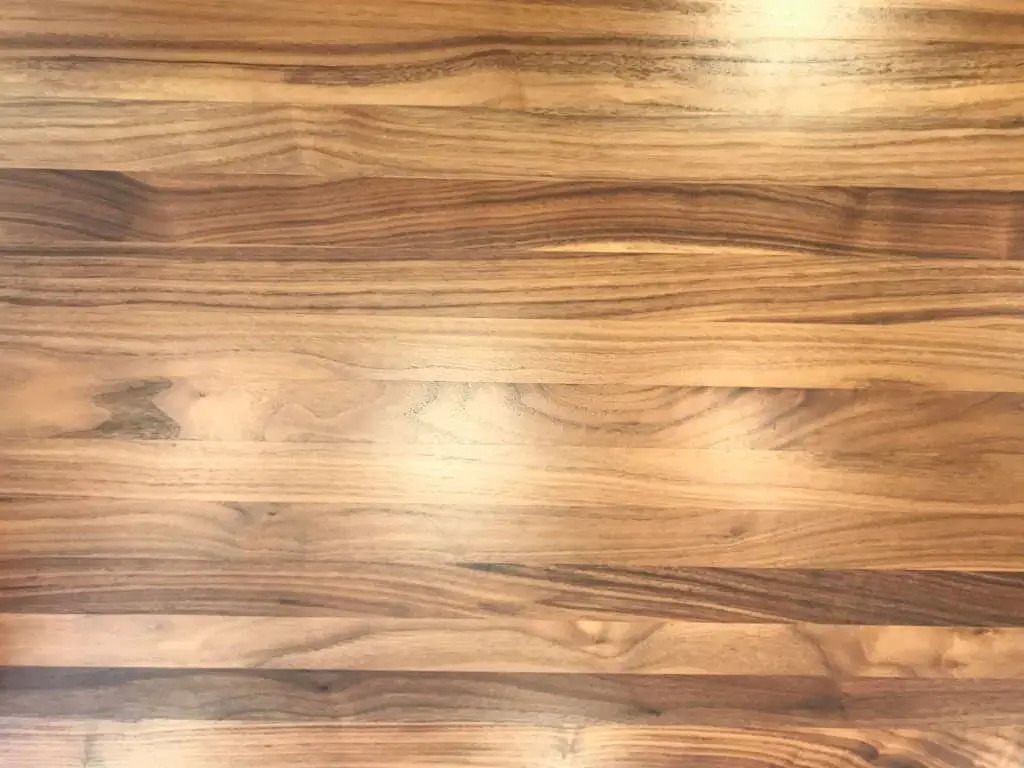
Butcher block countertops are renowned for their durability and long-lasting nature, making them an excellent choice for homeowners seeking a natural look in their kitchen. The hardwood material used to craft these countertops is resistant to spills and stains, allowing for effortless cleaning and maintenance. Furthermore, butcher block countertops are not only visually appealing but also functional, adding warmth and character to any space.
When selecting butcher block countertops, several factors must be considered. Initially, you’ll need to decide on the type of hardwood that suits your taste and style, with various options boasting unique grain patterns and colors. Next, you’ll need to determine the thickness of the countertop, as these can vary in terms of their overall weight and visual impact.
The finish is another crucial aspect to consider, as this will significantly influence the appearance and functionality of your butcher block countertops. A range of finishes are available, catering to diverse tastes and preferences. Lastly, you’ll need to decide on the installation method, with both professional and DIY options available. This decision will ultimately depend on your level of expertise, budget, and desired outcome.
While butcher block countertops have their share of advantages, it’s essential to acknowledge a few potential drawbacks as well. On the plus side, these countertops are surprisingly affordable compared to other high-end materials like granite or marble, making them an attractive option for those working within a limited budget. Additionally, they’re incredibly easy to clean and maintain, thanks to their natural resistance to stains and scratches.
However, there are some limitations to consider when it comes to butcher block countertops. For instance, they may not be the best choice for households that frequently engage in high-heat cooking, as they can be susceptible to damage from intense heat exposure. Furthermore, if not properly sealed, butcher block countertops may be prone to water damage, which could lead to costly repairs or even replacement.
Ceramic Tile Countertops.
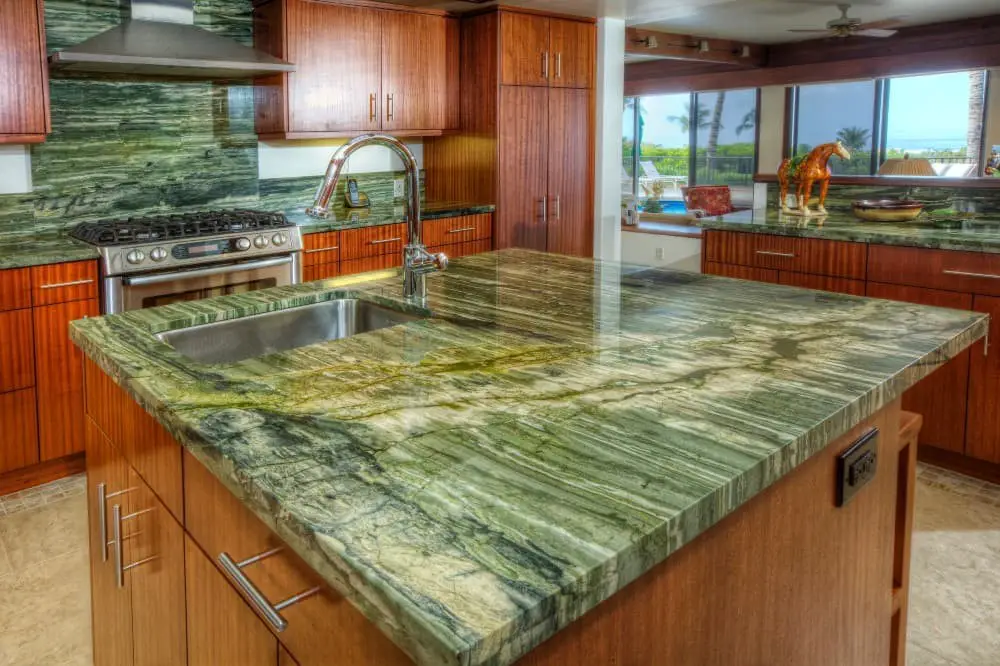
When considering ceramic tile countertops for your kitchen, you’ll want to think carefully about size, shape, color, and finish. Ceramic tiles come in a range of sizes and shapes, so it’s essential to decide on the perfect fit for your space. The same goes for color – with a vast array of hues available, you can choose one that complements your kitchen’s aesthetic.
In terms of finish, ceramic tiles offer various options, from matte to glossy, which will impact their appearance and ease of maintenance. Now, let’s weigh the pros and cons of ceramic tile countertops. On the plus side, they’re heat resistant, scratch resistant, and easy to clean, making them a practical choice for busy kitchens. Additionally, ceramic tile is often more budget-friendly than other countertop materials, making it an attractive option for homeowners on a tighter budget.
However, there are some potential drawbacks to consider. Ceramic tile countertops can be challenging to install, especially if you’re new to DIY projects or don’t have experience with tile installation. Furthermore, while they’re generally durable, ceramic tile may not be as long-lasting as other countertop materials like quartz or granite.
Concrete Countertops.
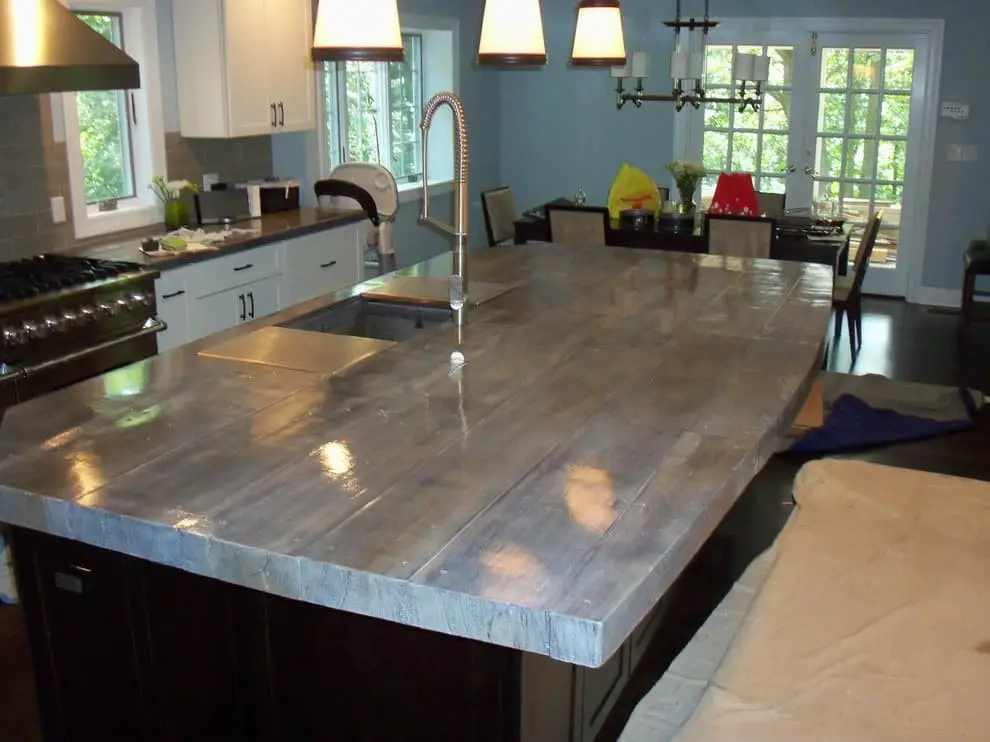
Concrete is an unexpected gem when it comes to kitchen and bathroom design, offering a perfect blend of durability and style. Its versatility in customization allows homeowners to seamlessly integrate it into their desired aesthetic, making it a practical choice for countertops. Not only do concrete countertops boast impressive heat resistance, enabling you to place hot cooking vessels directly on the surface without worry, but they’re also surprisingly easy to maintain.
Additionally, if minor damage does occur, repairs are relatively straightforward.
While concrete countertops certainly have their perks, it’s essential to consider both sides of the coin. On the plus side, they offer a sturdy foundation for your kitchen or bathroom, can withstand high temperatures, and require minimal upkeep. However, there are some drawbacks to be aware of.
Concrete countertops can be a significant investment upfront, and regular sealing and maintenance are necessary to keep them looking their best. Nevertheless, concrete remains a compelling option for those seeking a long-lasting and visually appealing countertop solution.
Copper countertops.
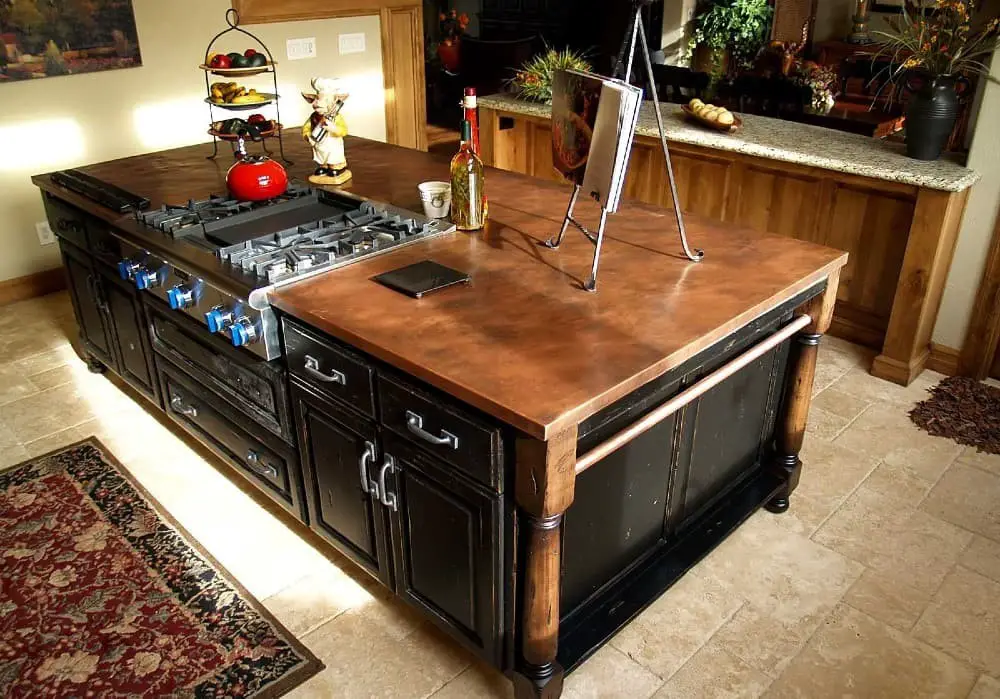
Copper has been a staple in kitchen design for centuries, renowned for its striking beauty, remarkable durability, and natural properties that make it an ideal choice for food preparation areas. Its inherent anti-bacterial characteristics ensure the cleanliness of your countertops, while its heat resistance makes it a great fit for cooking zones. The versatility of copper lies in its ability to be crafted from recycled or new materials, offering distinct aesthetic options.
Recycled copper often boasts a more rustic appearance and tends to be more budget-friendly, whereas new copper typically features a shinier finish at a potentially lower cost. The design possibilities for copper countertops are vast, accommodating various styles and preferences. This luxurious material is not only visually stunning but also remarkably low-maintenance, making it an excellent choice for both kitchens and bathrooms. With proper care, copper countertops can last a lifetime.
While they do come with a premium price tag, their unique charm, durability, and ease of upkeep make them a worthwhile investment. In terms of pros and cons, copper countertops bring a distinctive antique look to your kitchen, are extremely easy to maintain, and possess impressive durability. However, their higher cost and reduced heat resistance compared to other materials should be considered.
Dekton Countertops.
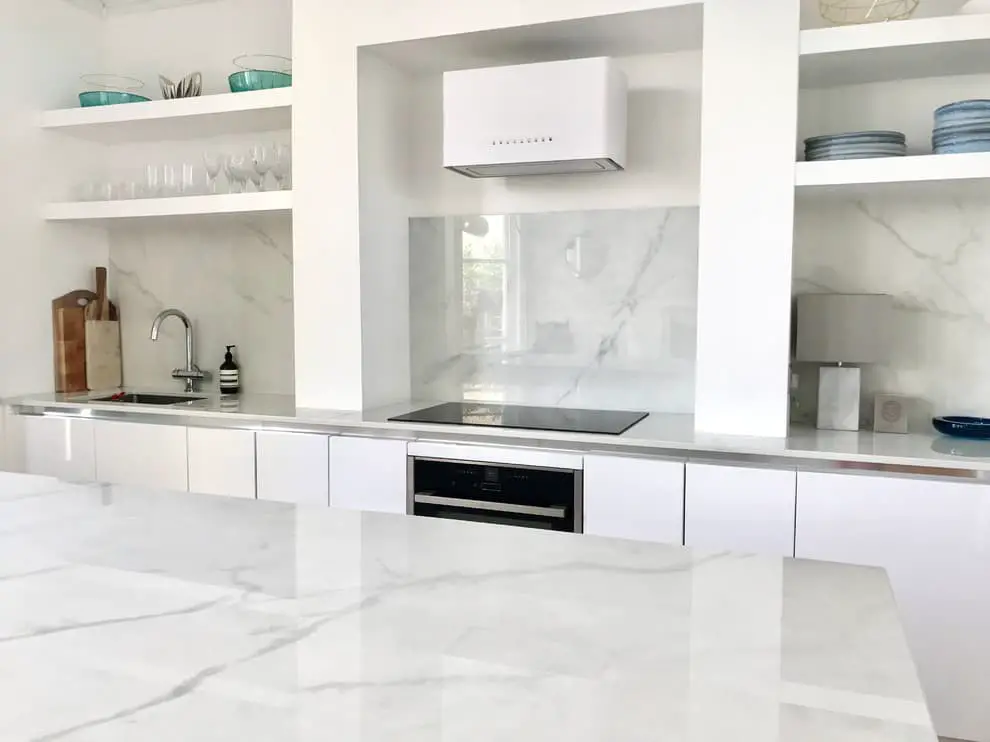
Dekton surfaces boast a unique composition of quartz, porcelain, and glass, resulting in an exceptionally durable and strong material. This innovative blend makes Dekton countertops an excellent choice for busy kitchens and bathrooms, where high-traffic activity is common. One of the key advantages of Dekton is its heat resistance and non-porous nature, allowing for effortless cleaning with just soap and water.
In fact, this low-maintenance surface requires no special cleaners or sealants, making it a practical option for homeowners. While Dekton countertops do come with some drawbacks, their benefits far outweigh the cons. For instance, they are remarkably resistant to scratches, heat, and stains, making them an ideal choice for families with young children or individuals who entertain frequently.
Additionally, Dekton surfaces are beautiful and easy on the eyes, offering a stylish addition to any room. On the other hand, some may view Dekton’s higher price point as a drawback. However, it’s essential to consider the long-term benefits of investing in this high-quality surface. Another consideration is that Dekton countertops can be challenging to repair if damaged.
This is due to their solid construction, which can make it difficult to fix chips or cracks without replacing the entire surface.
Eco-friendly Countertops.
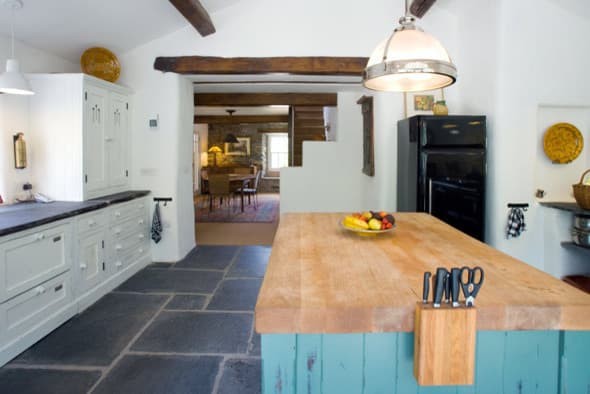
When it comes to eco-friendly countertops, the benefits extend far beyond just being good for the environment. In fact, these sustainable surfaces also have a profound impact on our health and wellbeing. Here’s why: Eco-friendly countertops are crafted from innovative materials such as bamboo, recycled glass, or even repurposed paper products.
This not only reduces waste but also eliminates the risk of off-gassing harmful chemicals like formaldehyde, which can be present in traditional countertop materials. As an added bonus, eco-friendly countertops are surprisingly durable and easy to maintain, making them a practical choice for any homeowner seeking a healthier living space.
Honed Granite Countertops.
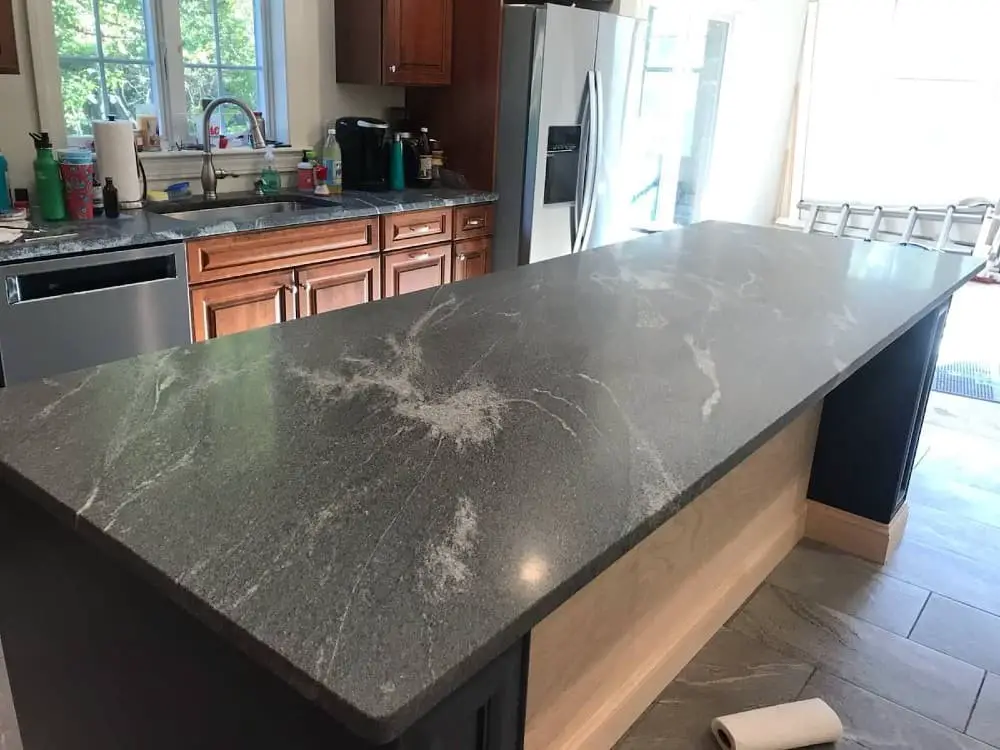
Honed granite, a type of polished granite with a matte finish, offers a unique blend of sophistication and practicality. Its non-reflective surface means fingerprints and smudges are less noticeable, making it an attractive option for kitchens and bathrooms. With a range of colors including white, black, grey, and green, honed granite can seamlessly integrate into any décor.
While honed granite countertops may not be as high-maintenance as other types of granite, they do require more attention than polished options. For instance, their matte finish makes imperfections more visible, and they need to be sealed more frequently to prevent stains from setting in. Despite these considerations, many homeowners find the rewards justify the extra effort. Ultimately, deciding on honed granite countertops hinges on weighing their pros and cons.
On one hand, the soft, matte texture has its own charm; on the other, it demands a bit more TLC to maintain its appearance. When evaluating this option for your home, consider whether the unique look and ease of maintenance outweigh the added upkeep requirements.
Laminate Countertops.
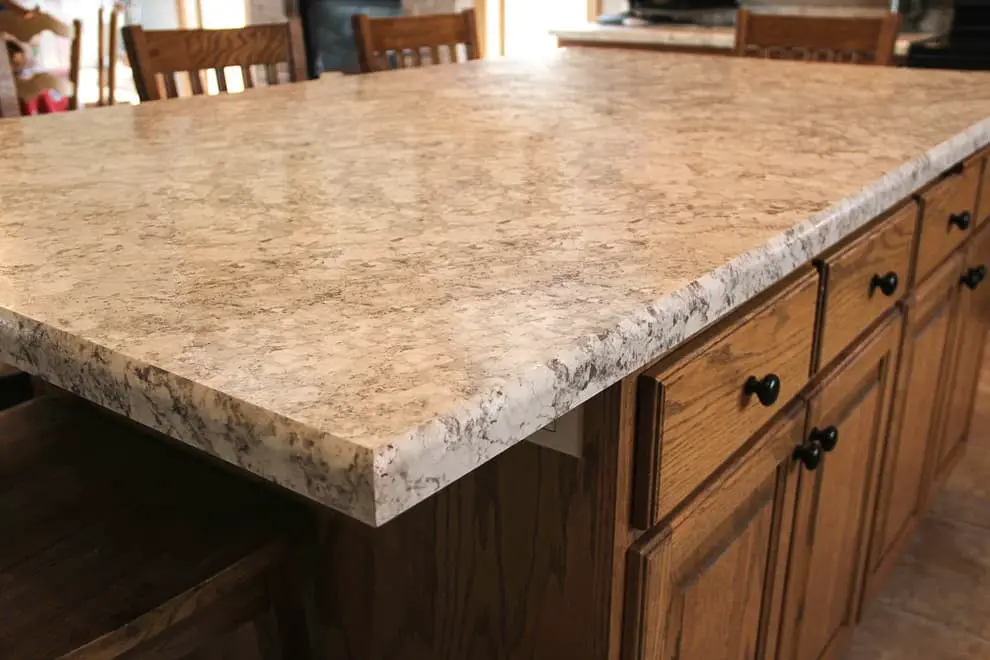
Laminate is a composite material composed of layers of paper or plastic bound together with adhesive. Its unique properties make it an ideal choice for creating durable surfaces, such as countertops. The affordability and ease of maintenance of laminate countertops have made them a popular choice among homeowners. The most common type of laminate used for countertops is high-pressure laminate (HPL), which is created by pressing layers of paper or plastic together under high pressure.
This process results in a strong and resistant surface that can withstand the demands of daily use. One of the significant advantages of laminate countertops is their ease of cleaning and maintenance. A simple wipe down with a damp cloth and mild soap is sufficient to keep them clean, while tougher stains can be addressed using nonabrasive cleaners. It’s essential to avoid using harsh chemicals or abrasive cleaners, as these can damage the surface.
Laminate countertops are also known for their durability and affordability, making them an attractive option for many homeowners. With proper care, they can last for years without showing signs of wear and tear. Despite their benefits, laminate countertops do have some drawbacks. One significant disadvantage is that they can be easily damaged if not handled carefully. They may scratch or chip more readily than other materials like granite or quartz.
Additionally, laminate countertops are not heat resistant and can be damaged by hot pans or appliances. Furthermore, they are more susceptible to staining than other materials, making it challenging to remove stubborn stains. Ultimately, the decision to install laminate countertops depends on your specific needs and preferences. While they may not offer the same level of luxury as some other options, they do provide a durable and affordable solution for many homeowners.
Lava Countertops.
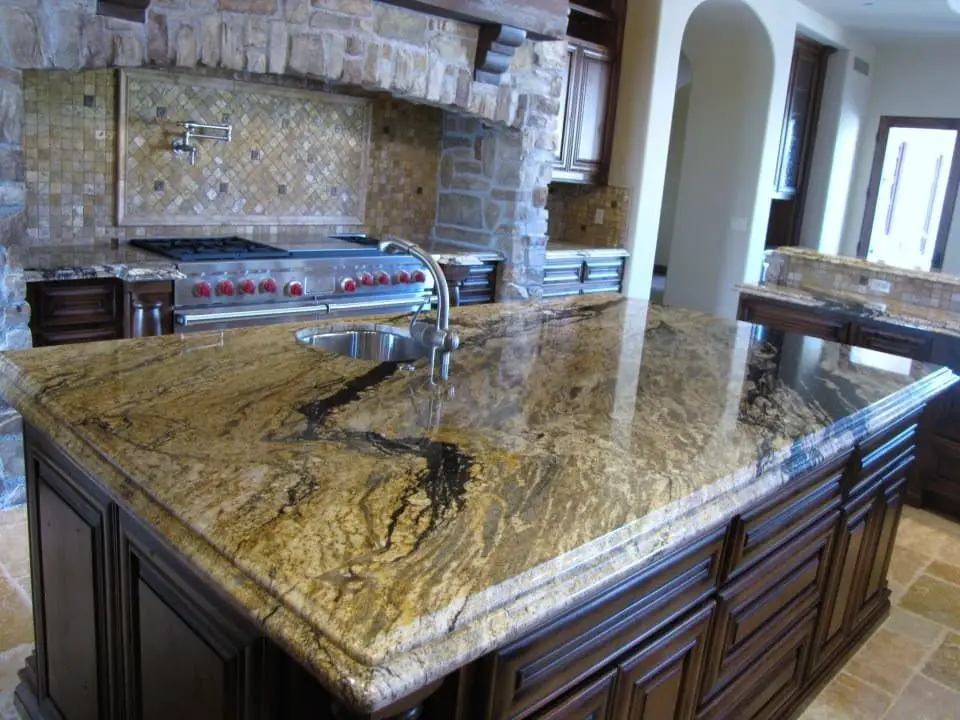
Lava countertops are crafted from pumice, a porous volcanic rock that forms when molten lava cools and solidifies. This natural material boasts a rough surface, often utilized in abrasive cleaners for its scrubbing prowess. Its inherent strength, heat-resistance, and stain-resistance make it an attractive option for kitchens where culinary activities thrive. Lava countertops can be fabricated in any hue, but they typically appear in dark shades like black or grey.
While their durability and ease of cleaning are significant advantages, their high cost and need for regular upkeep to maintain their appearance must also be considered.
Marble Countertops.
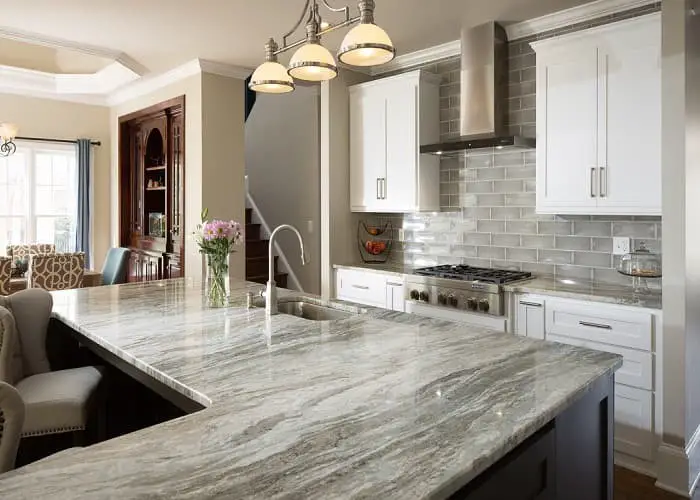
Marble, a natural stone used for centuries in kitchen and bathroom designs, boasts unique vein patterns and colors that add a touch of luxury to any space. While marble countertops are undoubtedly stunning, they do require special care and attention to maintain their appearance over time. To keep your marble surfaces looking their best, it’s essential to follow some simple tips. Firstly, be prompt in wiping up spills as soon as they occur, as marble is prone to absorbing liquids and stains.
Additionally, use coasters under glasses and trivets for hot pots and pans to prevent damage. When it comes to cleaning products, opt for mild, pH-neutral options or create your own solution using water and dish soap. Avoid harsh chemicals that can damage the surface of your marble countertops. Furthermore, consider sealing your countertops every few months to prevent stains and damage.
With these tips in mind, you’ll be well on your way to enjoying the beauty and functionality of your marble countertops for years to come. Marble has its pros and cons, though. On the one hand, it’s heat resistant, durable, and easy to clean, making it a classic choice for kitchen and bathroom surfaces. However, as a porous material, it can stain easily if not sealed properly. Moreover, regular maintenance is necessary to prevent damage from acids and spills.
Onyx Countertops.
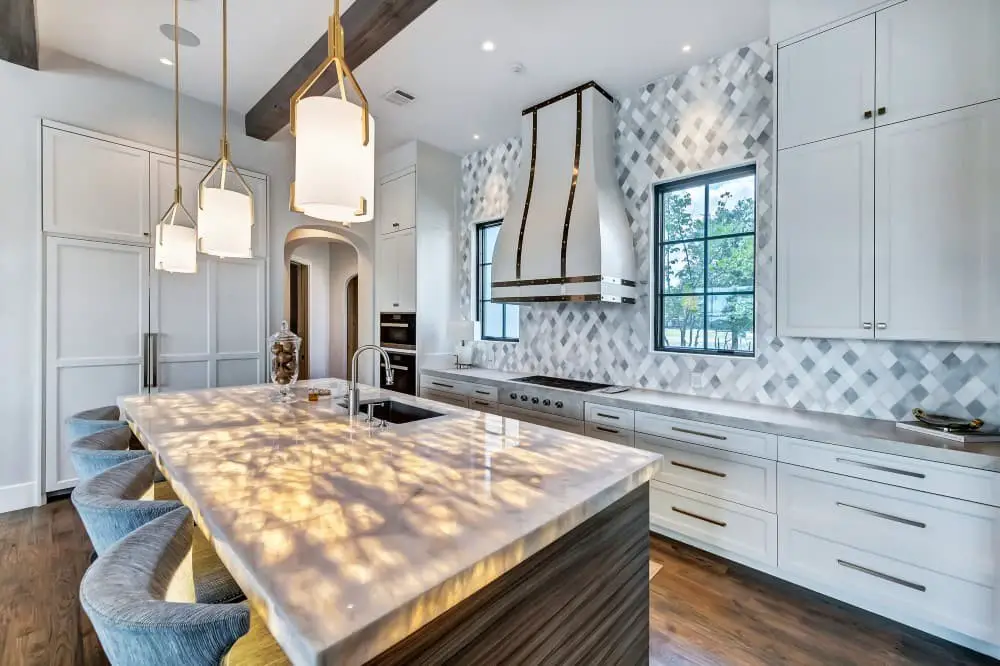
Onyx, a metamorphic rock born from the transformation of sedimentary rocks under extreme heat and pressure, boasts a unique and luxurious appearance that makes it an attractive option for countertops, backsplashes, floors, and beyond. While onyx brings many benefits to the table, it’s essential to weigh its pros against its cons before making a decision. One of the primary advantages of onyx is its undeniable visual appeal.
The stone’s distinctive layers of quartz create a striking pattern that can elevate the ambiance of any room. Additionally, onyx is surprisingly durable and able to withstand the wear and tear of daily use. However, its porous nature means it may be prone to staining if not properly maintained. Onyx also has a tendency to be brittle, which can lead to chipping or cracking if handled carelessly.
Furthermore, as one of the more expensive countertop materials available, onyx may not be within reach for every homeowner. Despite these drawbacks, onyx remains an alluring choice for those seeking a truly unique and luxurious aesthetic.
Polished Granite Countertops.
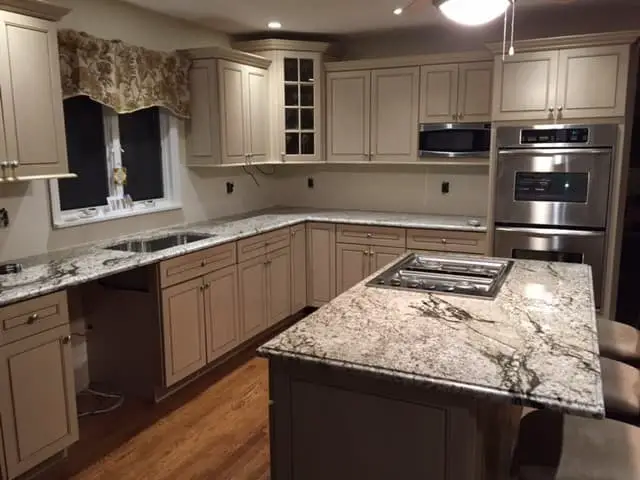
Polished granite countertops have become a staple in many homes due to their exceptional durability and aesthetic appeal. As a natural stone, polished granite offers unbeatable heat resistance and scratch resistance, making it an excellent choice for busy households. The beauty of polished granite lies not only in its rich colors but also in the unique patterns that each slab displays, allowing homeowners to find the perfect match for their kitchen or bathroom decor.
While there are many advantages to opting for polished granite countertops, it’s essential to consider both the pros and cons before making a decision. On the plus side, these countertops are remarkably easy to maintain, requiring only a quick wipe with a damp cloth to keep them looking their best. Additionally, polished granite adds significant value to any home, giving homeowners a sense of luxury and sophistication.
However, there are some drawbacks to be aware of.
One major consideration is the cost – high-quality polished granite countertops can be quite expensive, especially for larger areas or unique designs. Installation can also present challenges due to the material’s weight, which may require reinforcement of cabinets or flooring. Finally, the natural beauty of polished granite means that each slab will have its own distinct character, which may not appeal to those seeking uniformity.
Ultimately, the decision to invest in polished granite countertops depends on individual priorities and budget constraints. While it’s a significant investment, many homeowners find the rewards well worth the cost.
Porcelain Countertops.
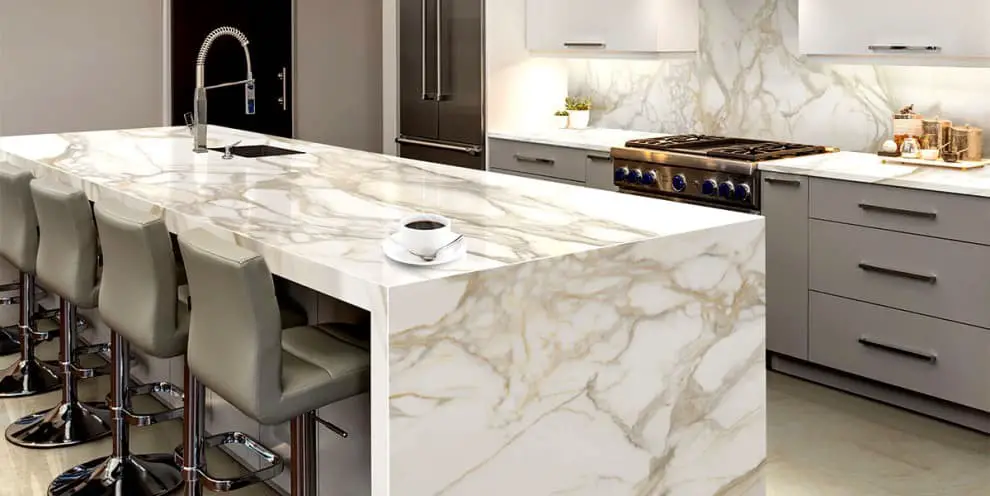
Porcelain countertops are renowned for their remarkable characteristics: high durability, hardness, and resistance to staining and scratching. This exceptional material is crafted by combining clay, minerals, and water, then firing it at extremely high temperatures. The result is a range of colors and designs that can elevate the aesthetic appeal of any kitchen. However, before making a decision, it’s essential to weigh the pros and cons.
On the plus side, porcelain countertops are stunning, offer various color and style options, and are surprisingly easy to maintain. Nevertheless, they do come with some drawbacks. For instance, they can be quite costly, and if not properly cared for, may chip or crack. To ensure a successful installation and prolonged lifespan, it’s crucial to hire a qualified professional and adhere strictly to the care instructions.
Quartz (Engineered Stone) Countertops.
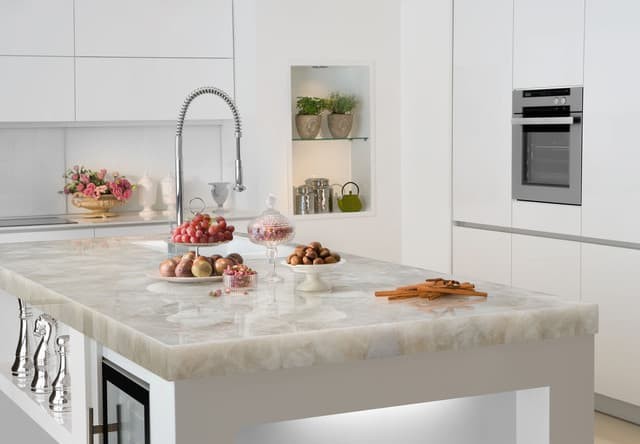
Quartz, a manufactured product comprising approximately 94% ground quartz and the remaining proportion consisting of resins, pigments, and recycled materials, boasts an impressive array of benefits. Its exceptional hardness makes it an ideal material for countertops, offering unparalleled durability. Unlike natural stones like granite, which require sealing to maintain their appearance, quartz is non-porous, eliminating the need for such upkeep.
Additionally, its resistance to staining from everyday household products and heat-resistance capabilities make it a practical choice for many homeowners. The advantages of quartz countertops are numerous. As an engineered stone product, quartz combines the natural beauty of quartz with man-made materials, resulting in a highly durable and low-maintenance surface.
Its non-porous nature ensures that it resists stains and bacteria, while its wide range of colors and patterns provides endless design possibilities. Furthermore, quartz countertops do not require sealing or waxing, much like their natural stone counterparts. However, it’s essential to note that quartz countertops also have some limitations.
While they excel in terms of durability, they are slightly less heat-resistant than natural stones, necessitating the use of a trivet or hot pad when placing hot pans on them. Moreover, quartz is more challenging to repair if damaged compared to other countertop materials.
Reclaimed Wood Countertops.
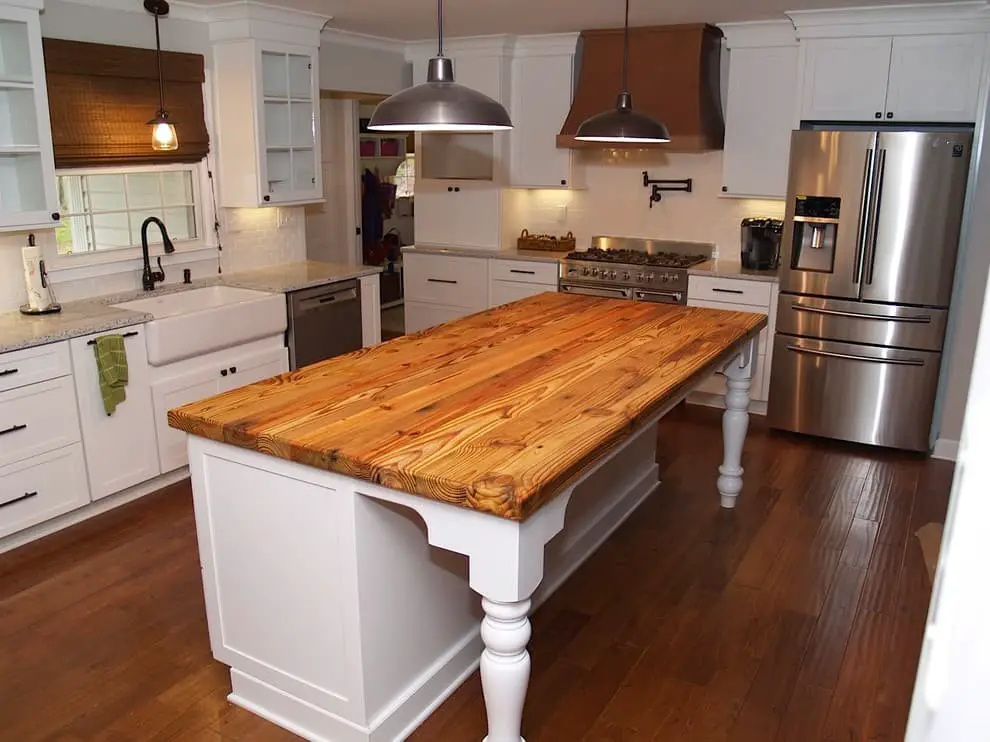
Reclaimed wood, with its unique character and charm, can elevate any room in your home. Countertops crafted from this eco-friendly material are an excellent way to infuse a natural element into your kitchen or bathroom. Not only do they boast a distinctive look, but they also promote sustainability by utilizing recycled materials. When selecting reclaimed wood for your countertops, it’s essential to consider a few key factors.
Firstly, as the material is comprised of recycled components, it may contain metal fasteners like nails or screws. A thorough inspection and removal of these elements before installation are crucial. Secondly, reclaimed wood tends to be more porous than new wood, necessitating a sealant application prior to use. In terms of pros and cons, the benefits of reclaimed wood countertops include their unique charm, durability, and potential to increase your home’s value.
However, you should also consider the drawbacks: the material can be expensive, difficult to find in the right size and shape, and require more maintenance than other options.
Recycled Glass Countertops.
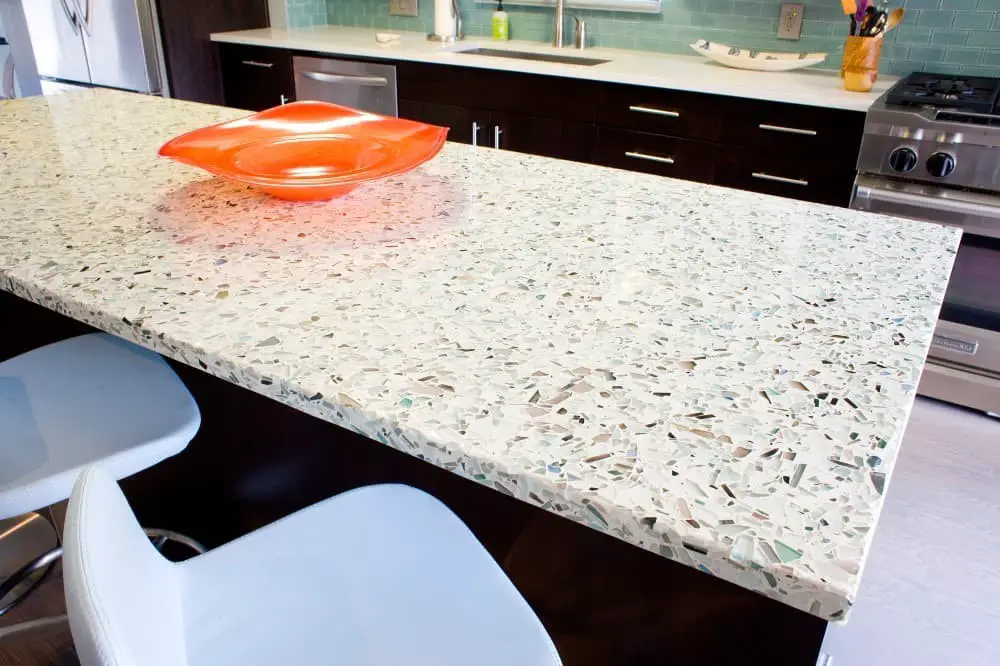
Recycled glass countertops offer a unique blend of aesthetic appeal and environmental responsibility for kitchen and bathroom renovations. The material’s versatility shines through in its wide range of colors and exceptional durability, making it an attractive option for high-traffic areas. As a product derived from recycled materials, it also aligns with eco-friendly values.
While the benefits of recycled glass countertops are undeniable, it’s essential to consider both the pros and cons before making a decision. On the plus side, these surfaces boast impressive strength and durability, ensuring they can withstand daily wear and tear. Additionally, their eco-friendliness is a significant selling point for those committed to reducing their environmental footprint. However, there are some drawbacks to be aware of.
For one, recycled glass countertops can be quite pricey, with prices varying depending on the brand, style, and quality. Furthermore, they do require regular maintenance and care, including sealing and polishing, to maintain their appearance and longevity.
Resin Countertops.
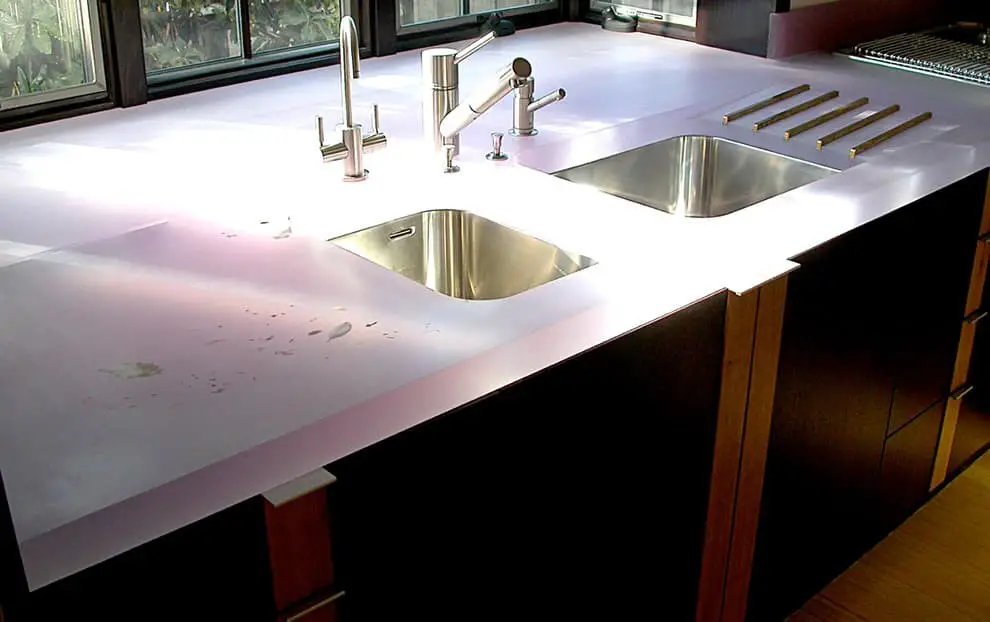
Resin countertops are a man-made material created by combining multiple substances, yielding a durable and hard surface. This material is often paired with other elements like glass or metal to produce the desired outcome. While resin may lack the natural charm of stone countertops, its versatility shines through in its wide range of available colors and patterns, allowing homeowners to find a perfect match for their style.
Resin’s non-porous nature also makes it resistant to stains and easy to clean, making maintenance a breeze. However, there are some drawbacks to consider. For one, resin can be quite pricey, although it tends to be more affordable than stone alternatives. Furthermore, resin is susceptible to damage from heat, which may require special precautions to maintain its integrity.
Silestone Countertops.
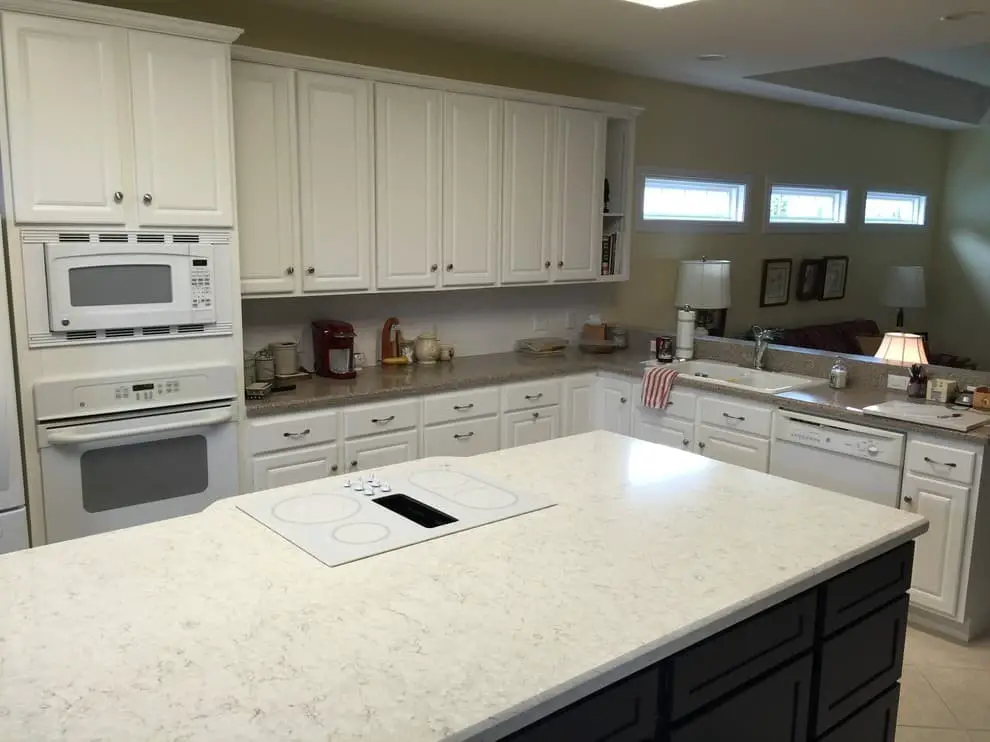
Silestone, a renowned brand of engineered stone quartz, has become a top choice for countertop material due to its exceptional durability and versatility. This premium surface boasts an impressive palette of colors and patterns, making it an attractive option for homeowners seeking a unique look. Additionally, Silestone’s remarkable heat resistance, scratch resistance, and stain resistance make it an excellent choice for busy kitchens.
While Silestone countertops offer numerous benefits, they also come with some drawbacks. One significant drawback is the hefty price tag, which may be out of budget for some homeowners. Furthermore, regular sealing is required to maintain their appearance and functionality. If not installed correctly, Silestone countertops may also crack or develop unsightly cracks over time, leading to costly repairs.
Soapstone Countertops.
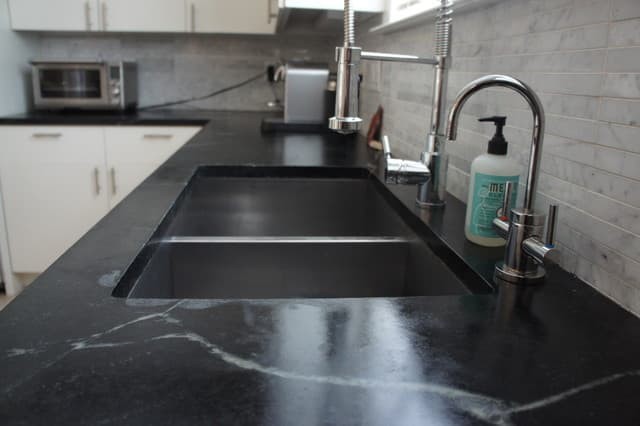
Soapstone, a natural stone quarried and cut into slabs, has been a popular choice for centuries in various applications such as countertops, sinks, fireplaces, and stoves. Its durability, heat resistance, and non-porous nature make it an ideal material for kitchen counters and bathroom vanities. Soapstone is available in a range of colors from light to dark, with green, blue, and black being the most popular hues.
While it’s a relatively soft stone that can be scratched or chipped if not properly cared for, its unique characteristics also render it resistant to heat, easy to clean, and a beautiful addition to any home. When considering soapstone countertops, it’s essential to weigh the pros against the cons. On the one hand, soapstone is a natural stone with a rich history, adding value to your home while offering durability and ease of maintenance.
On the other hand, its softness means it can be scratched or chipped if not handled carefully, and it may stain if not properly sealed. Despite these drawbacks, soapstone remains a popular choice for many homeowners seeking a unique and long-lasting surface.
Solid-Surface Countertops.
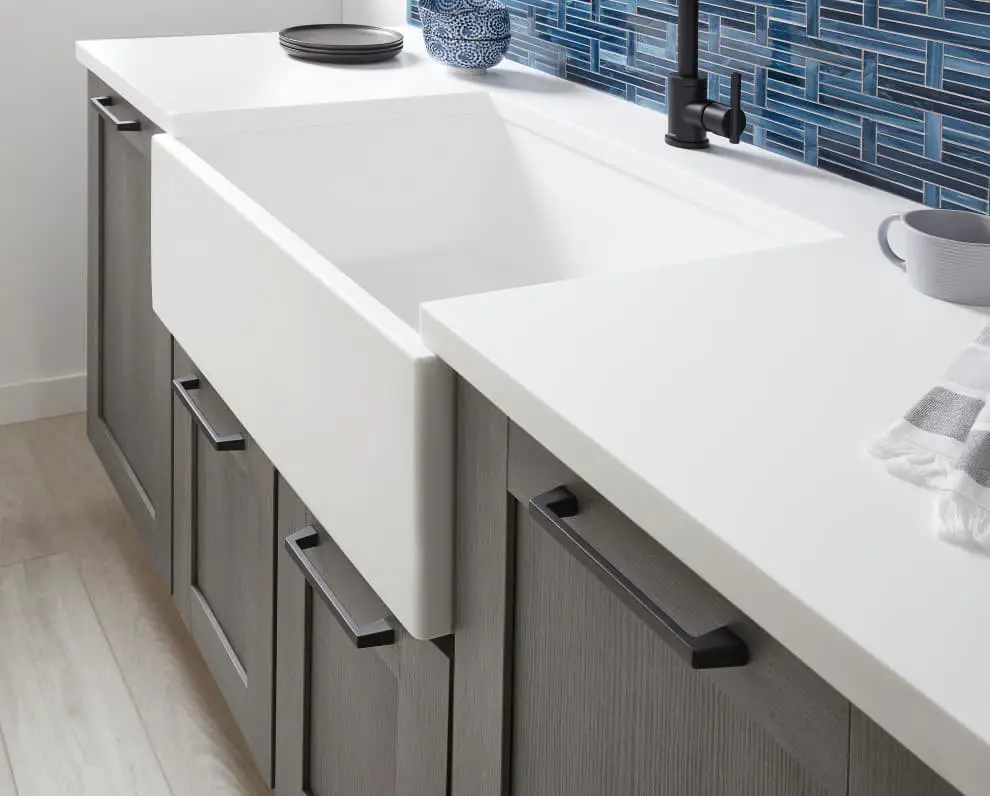
Solid-surface materials are manufactured blends of alumina trihydrate (ATH), acrylic, polyester resins, and pigments. This durable, non-porous material is available in a wide range of colors and patterns, making it an attractive option for many homeowners. Not only are solid-surface countertops visually appealing, but they’re also easy to clean and maintain, and relatively affordable compared to other materials.
Their versatility makes them suitable for various applications, from kitchen countertops and bathroom vanities to bar tops and outdoor countertops.
While solid-surface countertops have their advantages, they’re not without drawbacks. The cost of high-end brands can be a significant factor to consider. Additionally, professional installation is typically required, which can increase the overall project expense.
Furthermore, regular maintenance tasks like sealing and polishing are necessary to preserve the material’s appearance.
Some homeowners may also want to think twice about installing solid-surface countertops in areas prone to heavy use or featuring young children or pets, as scratches can be a common occurrence.
Stainless Steel Countertops.
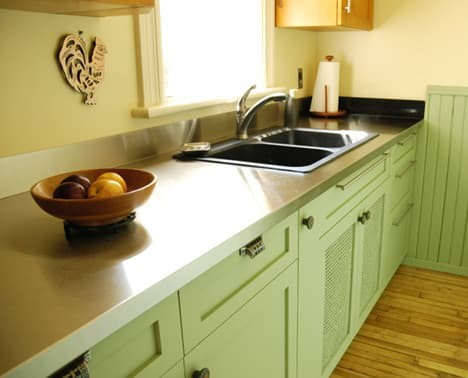
Stainless steel has been a staple in commercial kitchens for years, prized for its durability and low maintenance qualities. Its resistance to heat, scratches, and corrosion makes it an attractive option for homeowners seeking beautiful and long-lasting countertops. However, there are some important considerations to keep in mind when choosing stainless steel for your home.
One key factor is the material’s hardness, which can make it difficult to cut on without scratching the surface.
It’s essential to take care when preparing food or using sharp objects near the countertop to avoid damaging the material.
Another consideration is stainless steel’s high thermal conductivity. This means that hot pans placed directly on the surface can transfer heat to the countertop, potentially causing warping or cracking over time. To mitigate this risk, it’s recommended to use trivets or pot holders to protect the surface.
Lastly, stainless steel countertops can be a significant investment. Without careful planning and budgeting, homeowners may find themselves spending more than they anticipated on their countertop. It’s crucial to set a realistic budget and consider factors like material quality, installation costs, and maintenance requirements before making a final decision.
Travertine Countertops.
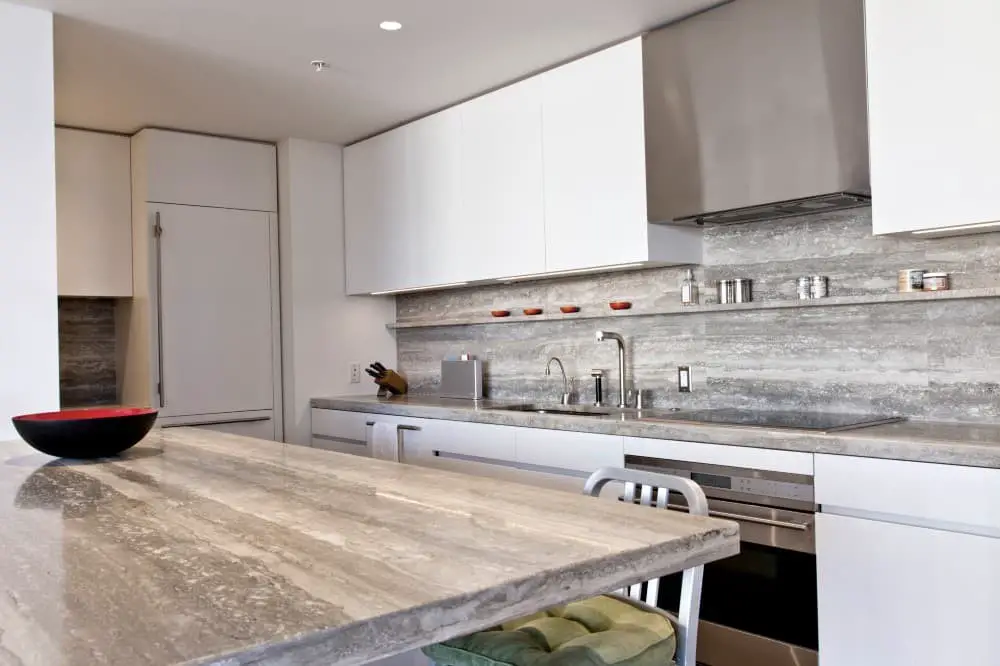
Travertine, a sedimentary rock born from the accumulation of sediments at lake or sea bottoms, gradually compacts over time into a solid stone. Its widespread presence is evident in Italy and Turkey, where it has been prized for centuries. As its popularity grows, so too does its appeal as a countertop material, cherished for its beauty and durability. Each travertine countertop boasts unique veining and patterns, making it a one-of-a-kind gem.
Furthermore, this natural stone is renowned for its remarkable strength and ability to withstand the rigors of heavy use. As with any material, travertine countertops have both pros and cons. While its benefits are undeniable, some drawbacks must be considered before making a decision. On the plus side, travertine’s heat resistance makes it an ideal choice for kitchen settings. Its stain-resistance and ease of cleaning also contribute to its appeal.
Moreover, travertine countertops can significantly increase your home’s value should you decide to sell in the future. However, travertine’s porous nature means that it can absorb stains and spills if not properly sealed. Additionally, it is susceptible to scratches and chips, so care must be taken when using sharp objects like knives. Finally, high-quality travertine countertops can come at a premium price.
What to Consider When Purchasing Countertops.
When considering updates to your kitchen, it’s crucial to prioritize countertop renovations. Not only do new countertops enhance the aesthetic appeal of your kitchen, but they also have the potential to increase your home’s value. To make an informed decision, you should weigh a few key factors when selecting new countertops.
One essential consideration is cost. While budget-friendly options may be tempting, it’s vital to recognize that countertops are a long-term investment.
Generally speaking, higher-quality materials will incur a greater upfront expense but will ultimately require less maintenance and last longer over time. A balanced approach between cost and quality is key.
Another crucial factor is the type of material used for your new countertops. Various options exist, each boasting its unique advantages and disadvantages. For instance, granite remains a popular choice due to its durability and ease of maintenance.
However, it is also one of the more expensive options available.
If you’re seeking a budget-friendly solution, laminate countertops are an excellent alternative. While less durable than other materials, laminate can provide your kitchen with a high-end appearance at a fraction of the cost.
FAQs
What is the most durable type of countertop?
When it comes to selecting a countertop material, durability is a crucial factor to consider. Some materials are inherently more robust than others, capable of withstanding the rigors of daily use. Here’s a rundown of some of the most resilient countertop options: From the imposing grandeur of granite to the versatility of quartz, solid surface, and concrete, each material has its own unique strengths that can withstand the test of time.
What is the most affordable countertop?
When selecting the perfect countertop for your kitchen or bathroom, cost is often a crucial consideration. While high-end options like granite and marble may catch your eye, their hefty price tags might leave you seeking more budget-friendly alternatives. In this scenario, laminate and solid surface countertops emerge as attractive choices.
Laminate countertops are engineered using layers of plastic bonded together through heat and pressure.
With a vast color palette to choose from, they can seamlessly blend into your desired aesthetic. Their durability ensures they’ll withstand the test of time, making them an excellent option for those seeking a reliable and affordable countertop.
For a more premium look without breaking the bank, solid surface countertops are worth exploring. Constructed using acrylic or polyester resins, these non-porous surfaces naturally resist stains and bacteria.
With a wide range of colors and patterns available, you can customize your countertop to fit your unique needs.
What is the most popular kitchen countertop?
When selecting kitchen countertops, several factors come into play. Budget is often the most crucial consideration, but durability, maintenance needs, and aesthetics should also be taken into account. Among the many options available, stone countertops like granite and marble remain popular choices due to their enduring quality and luxurious appearance, which can even boost your home’s value. However, they do require regular upkeep and may come with a higher price tag.
For those seeking a more budget-friendly yet still high-end look, quartz countertops offer an attractive alternative. Not only are they affordable, but they also demand little maintenance and boast impressive durability.
Conclusion
When exploring countertop options, it’s essential to consider not just the aesthetics, but also the functional pros and cons of each type. From sleek and modern quartz to warm and inviting wood, and durable yet low-maintenance laminate, there are plenty of choices to suit any taste or budget. As you weigh your options, keep in mind that each material has its unique strengths and weaknesses.
By taking the time to research and consider these factors, you’ll be well on your way to selecting a countertop that perfectly complements your space.
Related Posts
For those seeking a creative outlet and hands-on experience, becoming a kitchen and bath designer can be an incredibly rewarding career path. To get started, let’s explore some essential questions: which layout styles in Singapore make the most of available space? When renovating your own kitchen, what are the top tips to keep in mind? And finally, how do you select the perfect countertop for your new design? The process begins with understanding the fundamentals and learning from experts.
From there, it’s all about creativity and attention to detail, ensuring every aspect of the kitchen or bath space is carefully considered and executed. Whether seeking inspiration for a personal project or looking to turn this passion into a full-time profession, the world of kitchen and bath design offers endless possibilities.

